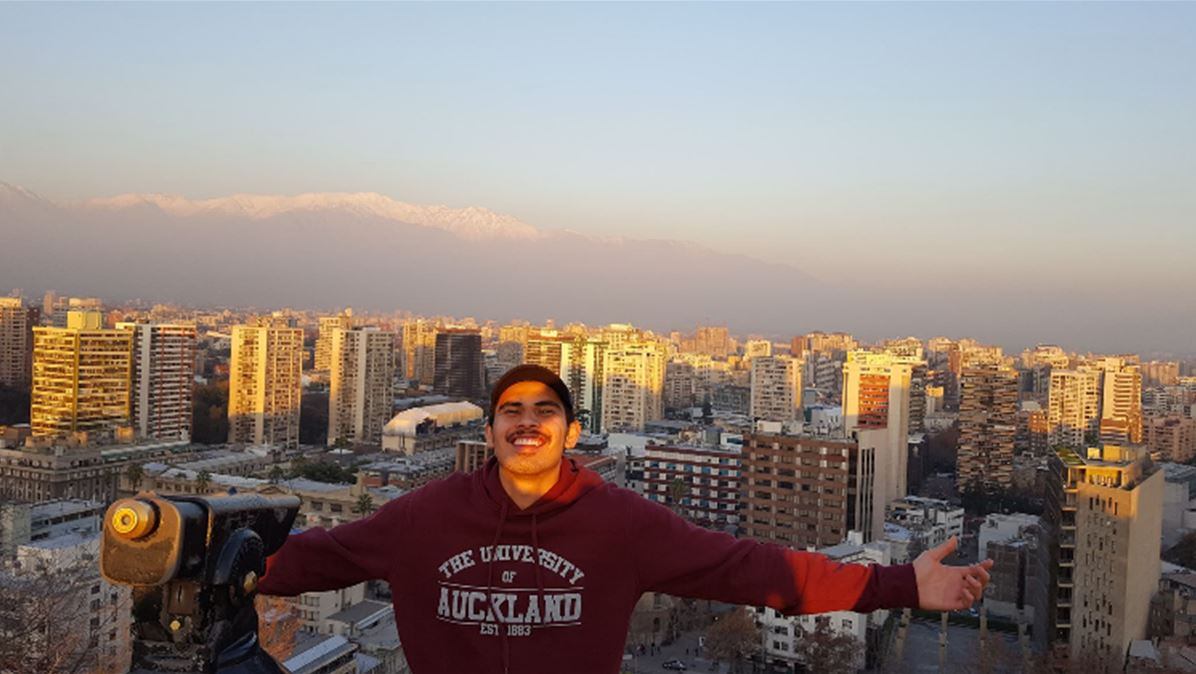Auckland University masters student Mohi Allen is on a mission to revitalise te reo Māori through waiata.
As part of his masters, the Ngāpuhi, Te Rarawa, Ngāti Te Rangi and Ngāti Kahungunu descendant is researching the impact of contemporary Māori music on te reo revitalisation.
He says music has always been a huge part of his life, which influenced his choice of study.
“I guess I’ve fused my love for music with my passion for te reo Māori. I also saw within my undergraduate research that there was a lack of research about contemporary Māori music and its effects on language revitalisation so I decided that that would be my kaupapa,” Allen says.
His journey started when he talked to whānau at his marae in Ohaeawai about ways to help rangatahi learn te reo Māori.
“Once I started getting into my undergraduate studies I found a little bit of a spot there where there was barely any literature on this particular topic, which I thought was pretty surprising, but also thought it was a good opportunity for me to take it up and find ways, other avenues, to revitalise a language.”

Mohi Allen is on a mission to revitalise te reo Māori through waiata / Source: Mohi Allen.
Since he started researching he’s found there to be a huge surge of Māori music artists composing completely in te reo Māori including Maimoa, Rei, Alien Weaponry, Teeks and others.
“Through research, we’ve seen that these artists have used their music as an instrument or as a way to transmit mātauranga histories, whakapapa, pakiwaitara, completely in te reo Māori while also composing these tunes in a way that is appealing to rangatahi, Allen says.
“So, by creating Māori music that is cool, relevant, current and appealing to rangatahi, these artists are creating a new space for rangatahi, one, to be proud in their identity but also to encourage them to speak and engage with te reo Māori and the history and te ao Māori in general.”
However, Allen says this form of transmitting knowledge and mātauranga Māori isn’t something new.
“Over time I guess we’ve seen the evolution of Māori music from its early forms to growing into music produced today and I guess it’s just gradually adapting to this world, to its current state and that’s what we see with the efforts of Māori music artists to date.”
He says his sister,r Rukuwai Allen, who works as a news reporter at Māori Television, was one of his first musical influences.
“As kids, we used to compose waiata for our hāhi, for our church. Following on from that we decided to get into more contemporary writing for our kapa haka group at school and obviously being the person that she is, she is quite influential in all aspects," he says.
“With her te reo Māori influence she’s sort of encouraged my thinking around creating bilingual music as a youngster which is something I continue to do today.”
